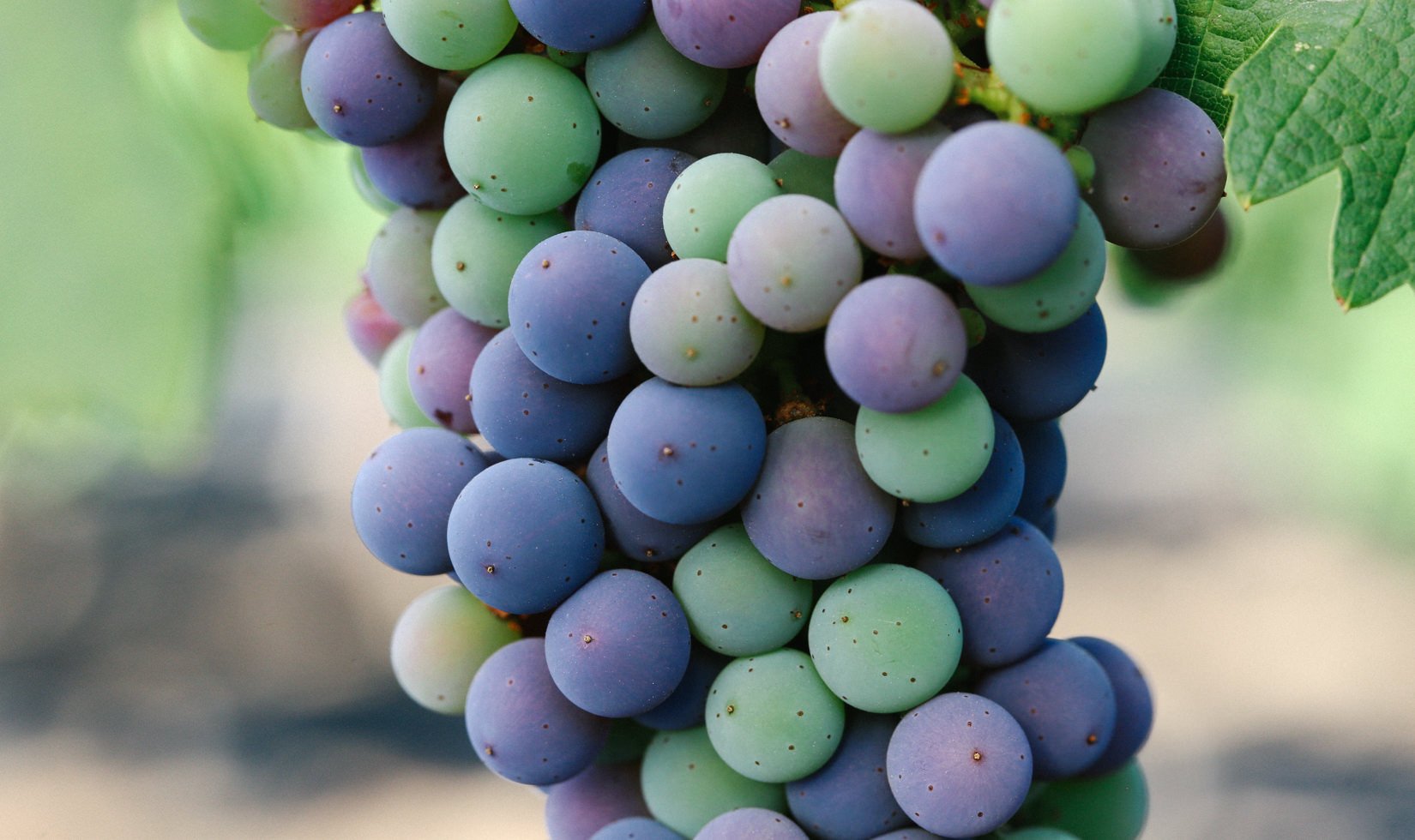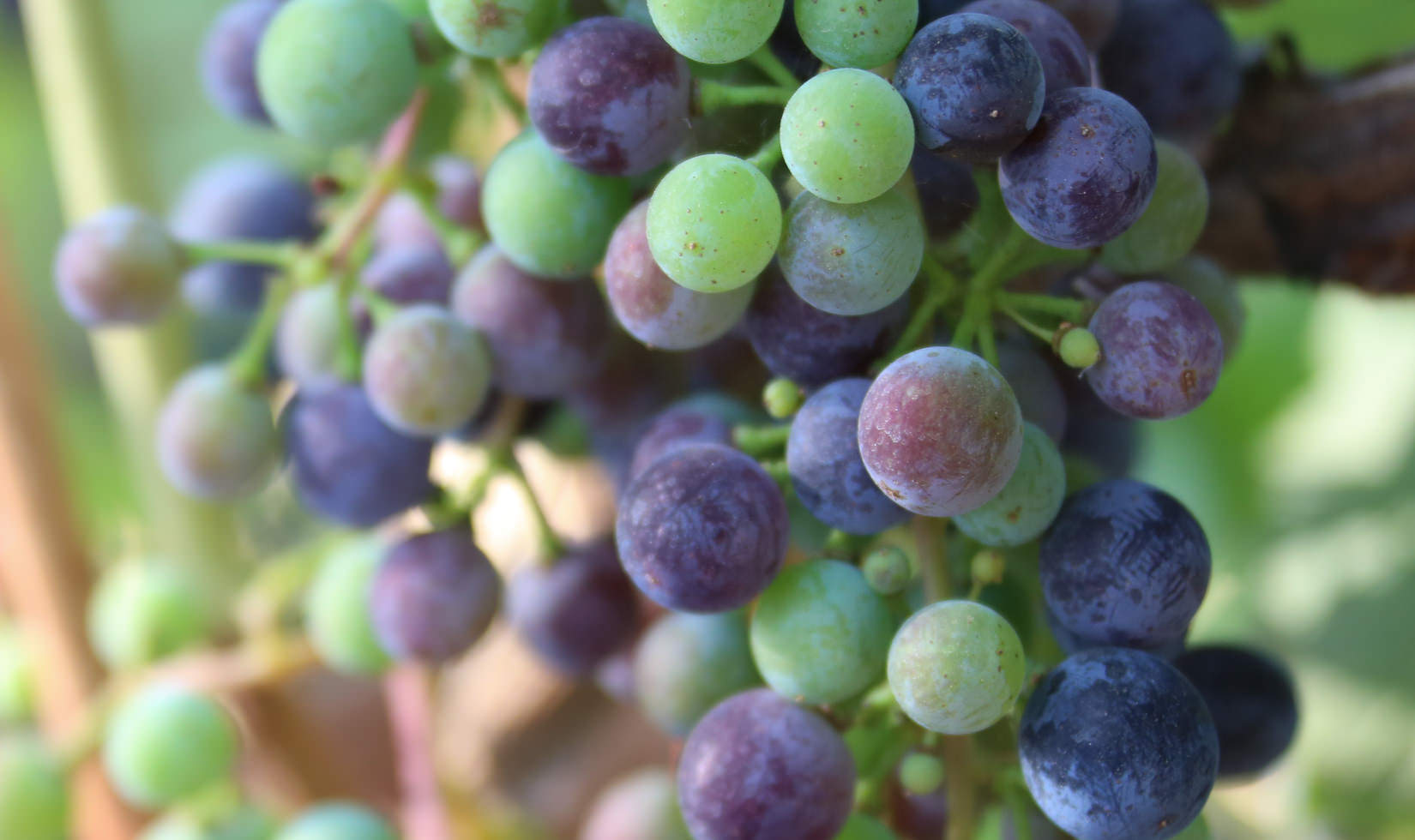Do Grapes Change Color? Understanding Grape Veraison
Each summer, grapes begin to change color in our vineyards. The beginning of ripening, grape veraison is the time in a vine’s annual lifecycle when the red grapes change from green to purple hues. Veraison, French for the “onset of ripening,” usually begins in July in moderate weather years, but in cooler vintages, red grapes sometimes don’t start changing color until August. As a general rule, the time from coloration to harvest is typically about six weeks. In challenging, cooler vintages (such as 2011, pictured in the above video), veraison can take longer and lead to unevenly ripened grapes.
There’s much more to grape veraison than the fascinating color change we can see with our eyes. The grapes cease growing in size during this period of their lives. Grapevines begin focusing all their energy into the existing clusters hanging on their shoots, allowing sugars to increase and acids to decrease.

Why Uniform Grape Veraison is Important
Winemakers want the grape clusters to go through veraison fairly quickly, because the uniformity of coloring within the clusters equals uniform flavors at harvest time. Being able to harvest uniformly ripened grapes is one of the keys to making a silky, balanced Jordan Cabernet Sauvignon. If some grapes in the clusters are under-ripe, some perfect and some overripe, the finished wine will express some combination of too dry, too fruity and even too hot or high in alcohol. Only uniformly colored red wine grapes can make a balanced, smooth wine.

Addressing Uneven Colors During Veraison
The warmer the weather, the more likely the grapes will change colors swiftly and uniformly. So, what does a winemaker do when the grapes change color unevenly? At Jordan, we practice veraison “thinning” of clusters–removing any grape clusters that still have a mix of green and red berries after ripening begins. This sacrifice ensures the remaining grapes on the vine develop consistent flavors.
During ideal growing seasons, moderately warm temperatures help veraison happen at a perfect pace. Merlot, Cabernet Sauvignon and Malbec grapes start changing color in Alexander Valley in mid- to late July, depending on when vineyard pruning occurred and the microclimate of each vineyard. In an average year, Jordan’s Alexander Valley vineyards complete veraison over 10 to 14 days.

Do Grapes Change Color at Different Times?
Different red grape varieties go through veraison at different times. Thinner-skinned grapes like Pinot Noir tend to change color first–and thus are harvested first. At Jordan, the red grape harvest typically begins in mid-September (or the third week of the month) with Merlot grapes, which ripen about one or two weeks earlier than Cabernet Sauvignon. The tiny hillside parcel of Malbec grapes we source begins veraison around the same time as Merlot, while Jordan Estate Petit Verdot grapes tend to change color 2-3 weeks later than the other three Bordeaux grapes that comprise the Jordan Cabernet Sauvignon master blend. Saving the best for last, we generally pick Cabernet Sauvignon later than the others.
Above, you can see the variation in the architecture of the grape clusters and ripening differences. These photos were taken between the end of the July to the first week of August.
Subscribe to our newsletter and go behind the scenes with our winemaking and vineyard staff monthly.
The post Do Grapes Change Color? Understanding Grape Veraison appeared first on Jordan Winery.
